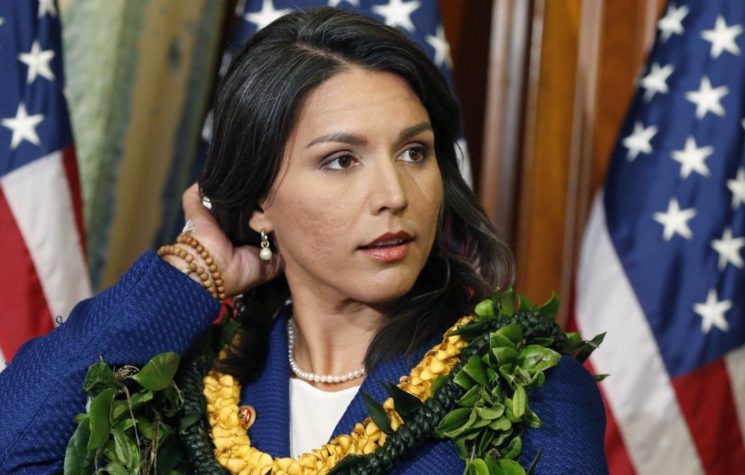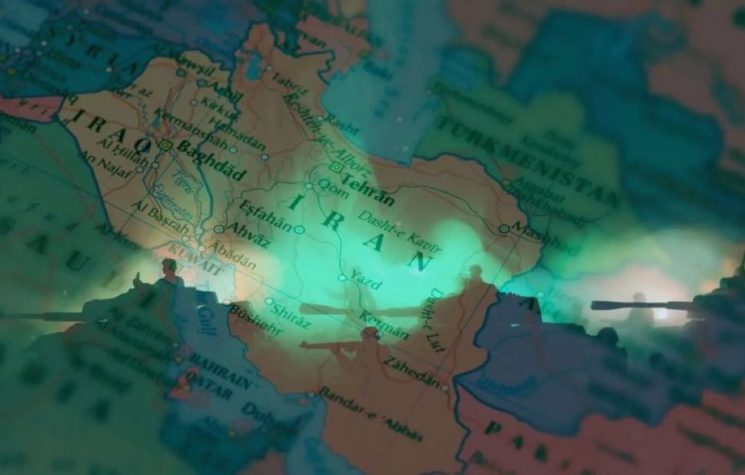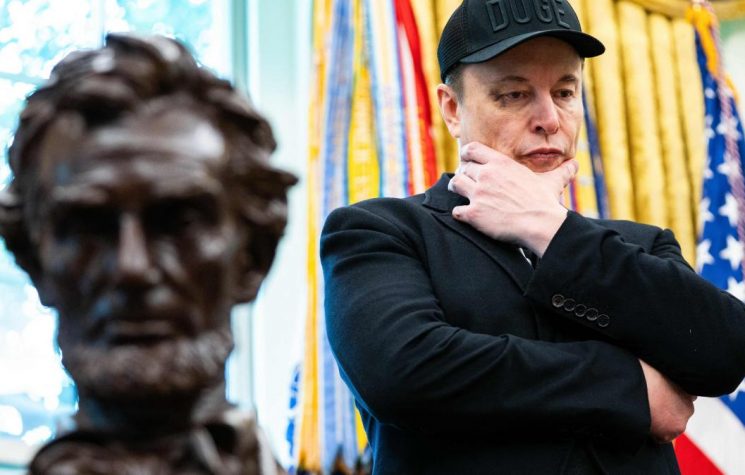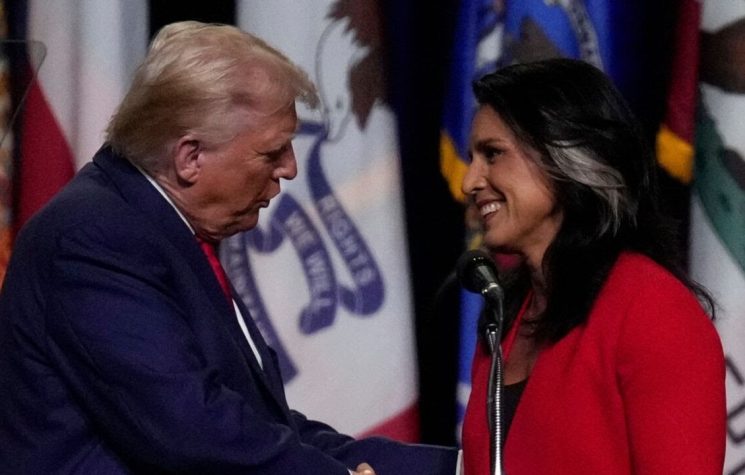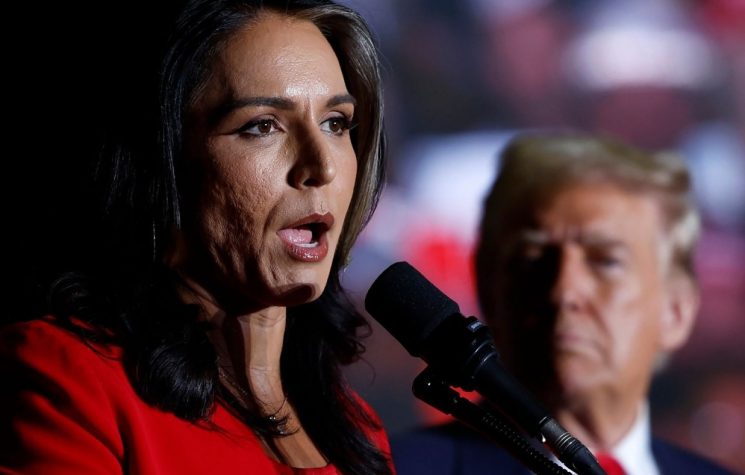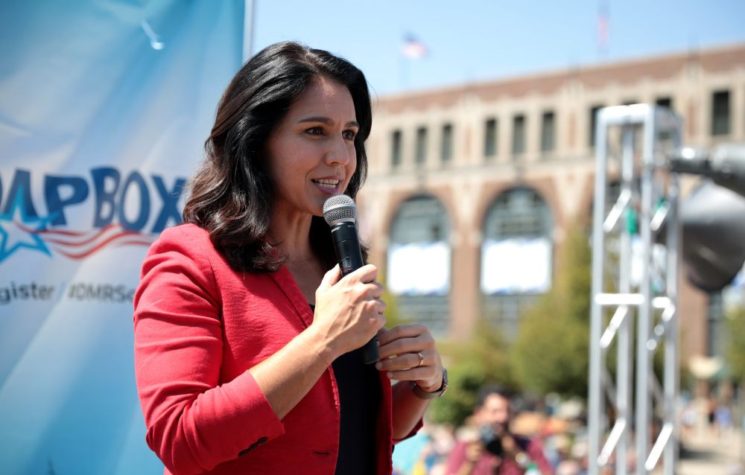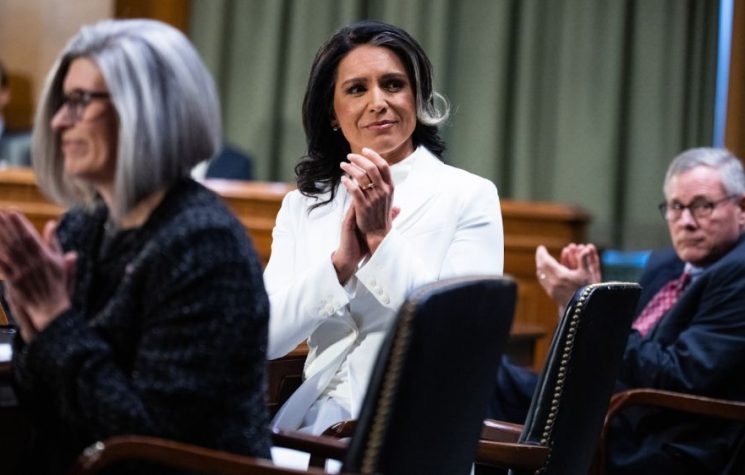With maybe one exception, the twelve Democrats who took part in Tuesday night’s debate were all in favor of turning back the clock to the glory days of the US empire. They’re livid that Trump has messed things up by betraying the Kurds. But they promise that as soon as they take back the White House, the United States will begin throwing its weight around the way it did in the good old days of Barack Obama and Hillary Clinton.
Congresswoman Tulsi Gabbard was the sole exception. She started things off by slamming not only Trump but members of her own party “who have supported this ongoing regime change war in Syria that started in 2011, along with many in the mainstream media, who have been championing and cheerleading this regime change war.”
Even better was her slam at the corporate media for smearing her as a Russian agent for daring to question foreign-policy orthodoxy. “Just two days ago,” she said, “the New York Times put out an article saying that I’m a Russian asset and an Assad apologist and all these different smears. This morning, a CNN commentator said on national television that I’m an asset of Russia. Completely despicable.”
Quite right. The Times subsequently pointed out that the Oct. 12 article, entitled “What, Exactly, Is Tulsi Gabbard Up To?,” never called her a Russian asset. But it came within a hair’s breadth by stating that her arguments remind “some Democrats of the narrative pushed by Russian actors during the 2016 presidential contest,” that the Russian news agency RT mentions her “frequently,” and that certain Hillary Clinton supporters see her “as a potentially useful vector for Russian efforts to sow division within the Democratic Party.”
So if it didn’t to use the a-word, it didn’t have to. Readers got the idea. As for CNN commentator Bakari Sellers’s statement a few hours prior to the debate, it was indeed outrageous. “There is no question,” he told a CNN panel, “that Tulsi Gabbard … is a puppet for the Russian government.”
Joe McCarthy would have been proud. But the other eleven candidates were too busy embracing the American war machine to notice. Indianapolis mayor Pete Buttigieg said Gabbard was “dead wrong” because “the slaughter going on in Syria is not a consequence of American presence. It’s a consequence of a withdrawal and a betrayal by this president of American allies and American values.” Pre-Trump, presumably, peace and joy reigned under pro-Al Qaeda rebels backed by the Saudis and US.
Senator Amy Klobuchar urged the US to continue giving “humanitarian aid” to Syria and worried that Trump was playing into the hands of China and Russia. Kamala Harris, the former prosecutor who once called for jailing parents whose kids skip school, warned that “Iran, Assad, and ISIS” were benefitting as well. Juan Castro said Washington should “work with our allies to pressure Syria to stop the aggression” – forgetting, evidently, that it was Turkey that had invaded Syria and not Syria that had invaded itself.
Then there was Senator Cory Booker, ex-mayor of the urban wasteland known as Newark, New Jersey. Trump, he said, “is turning the moral leadership of this country into a dumpster fire. We literally have great generals like [ex-Secretary of Defense James] Mattis who said on the world stage … [that] there can be no better friend than the United States of America … [and] no greater enemy than the United States of America. This president has turned that upside down and now is doing things to undermine our critical alliances and partner with Russia.”
So Booker wants to return to a time when the US imposed shock and awe on countries it doesn’t like, most of which turn out to be Muslim and in close proximity to Middle East oil.
Democrats were never for peace. But now they’ve reinvented themselves as a fire-breathing party of war, one that sees Russian agents under every bed and behind every tree and whose chief beef with Trump is that he’s allegedly gone soft on Vladimir Putin. The new Democratic persona couldn’t be more vicious because it clearly longs for US-sponsored regime change as in Libya and Syria and all the horrors it entails. It couldn’t be crazier because it fails to recognize how little such wars have accomplished and how much political damage they’ve caused by by destroying entire societies and triggering a vast refugee crisis whose reverberations in Europe and America are still being felt.
But mostly it’s sad because it shows how ignorant Democrats have become. American power is on the wane, US foreign policy is a ball of confusion, while little countries like Venezuela are no longer so easily cowed. The Sept. 14 Houthi drone attack may meanwhile have constituted the most dramatic military revolution since the brass cannon. Saudi defenses with the most advanced weaponry that oil revenue can by – high-tech fighter jets, Patriot anti-missile systems, German-made Skyguard air-defense cannons, and so forth. But all proved useless against a small number of low-cost drones.
It’s certainly a gamechanger. Yet other weapons in the works may be even more so, most notably anti-ship hypersonic missiles such as the Russian 3M22 Zircon or the Chinese DF-ZF. Capable of speeds of Mach 5 (3,836 miles per hour) and higher, they are capable of breaking through the most sophisticated defenses. In May, Trump dispatched the USS Abraham Lincoln aircraft carrier to the Persian Gulf as a show of force. But it has stayed 600 miles away for fear of Iranian diesel submarines, shore-launched cruise missiles, and swarms of missile-bearing high-speed boats, all at a fraction of the price.
“Today the United States military increasingly begins to remind one of Russia in the 1990s,” writes Andrei Martyanov in his recent study Losing Military Supremacy: The Myopia of American Strategic Planning (Clarity, 2018). The old concept of a “hollow force,” a term coined in the 1970s to describe the post-Vietnam US military, has returned, he says, to haunt the Pentagon once again.
Too bad no one told the Democratic candidates. They want to blame the US military decline on Putin. Yet America brought it on itself.











